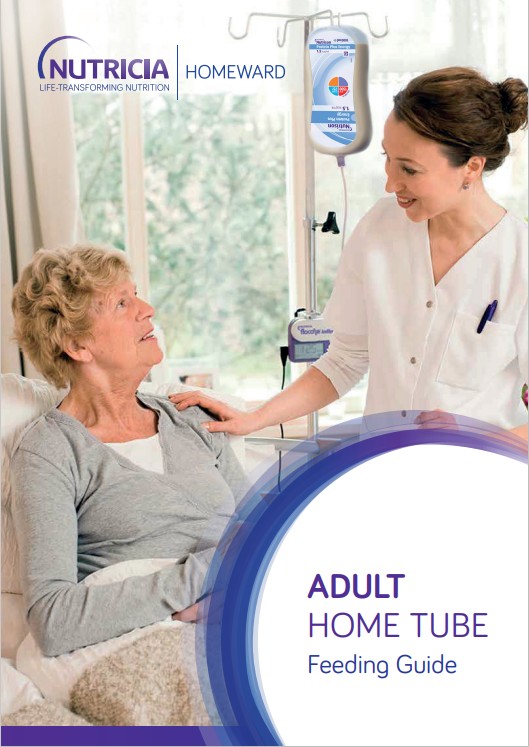What is enteral nutrition and why am I on it?
Enteral Nutrition (enteral nutrition support) is a term that describes taking nutrients into your body via your gastrointestinal tract, Tube feeding is a type of enteral nutrition support. In tube feeding, you use a tube that is placed in either your stomach or small intestine (parts of your gastrointestinal tract) to give your body nutrition. Your healthcare professional has recommended tube feeding for you so that you can give your body the nutrition it needs when you are unable or less able to take enough nutrition orally.
Your healthcare professional has recommended tube feeding for you because you cannot take enough food orally. If you are unable to get enough nutrition from your diet, you are at risk of losing weight or developing nutritional deficiencies. Tube feeding will provide you with the nutrients needed to maintain weight and, in some cases, support recovery, help respond to treatment, and maintain independence. The nutrition you take in through your feeding tube comes from a tube feed.
Tube feeds are a liquid form of nourishment that contain nutrients you need to maintain health. The nutrients in a tube feed are similar to what you would get from normal food and are digested in the same way. These include different carbohydrates, fat, protein, vitamins, minerals and water. Some tube feeds also have fibre. You may also take oral nutritional supplements via your feeding tube.
There are lots of different types of tube feeds to suit people with different nutritional needs. Your needs depend on factors such as your age, weight, medical condition and whether you can still eat or drink. Your healthcare professional will advise which tube feed is most suitable for you.
Your healthcare professional will let you know if it is safe for you to eat while tube feeding. Tube feeding may have been recommended for you because taking food orally is not safe anymore or it may be too difficult to get enough nutrition in the way. In this case, tube feeding will become your main or only source of nutrition and you will follow a tube feeding plan that provides enough nutrition to meet your individual needs. A dietitian or other healthcare professional will determine your nutritional needs and advise of the most suitable tube feed(s) for you.
Tube feeding may have been recommended for you as a means to 'top-up' your diet. If you are able to eat you'll be given information about the type of foods and amounts that are safe. If you're being tube fed because of swallowing difficulty, you might be visited by a speech and language therapist in hospital and/or at home, who will advise you on what types of food are safest for you.
Tube feeds come in different packs and sizes. You may be recommended to take one or more tube feeds per day. These may come in a pack or bottle and the usual volumes are 500ml, 1000ml or 1500ml per pack or bottle. If you are bolus feeding or need to use a combination of products to meet your unique needs, you may take oral nutritional supplements via your feeding tube. These come in smaller volumes such as 125mls, 200mls or even smaller doses. Your healthcare professional will recommend a tube feeding plan that meets your unique nutritional needs. They will consider your medical diagnosis and feeding routine when making this decision. Therefore, your tube feeding plan (what feed(s) you are taking and how much you take in a day) may change over time in response to your needs.
Alternatively, you may be recommended a powdered feed which can be made up to a liquid before you take it. Powdered feeds will come in a tin.

